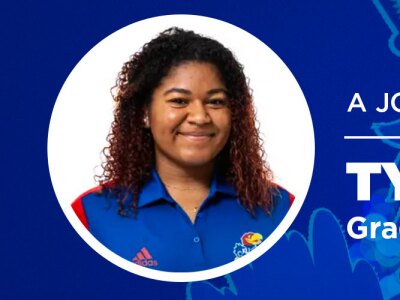The KU Sport Management Blog
Below, you can find our blog posts covering a range of essential topics relating to the online master’s in sport management* program at the University of Kansas.
From polishing your admissions components until perfect to sport careers growth and related happenings in the industry, this is your go-to destination for more information on the world of sport management.
*This program is a Master of Science in Education (M.S.E.) degree in health, sport management, and exercise science with an emphasis in sport management.
From polishing your admissions components until perfect to sport careers growth and related happenings in the industry, this is your go-to destination for more information on the world of sport management.
*This program is a Master of Science in Education (M.S.E.) degree in health, sport management, and exercise science with an emphasis in sport management.
Explore the top sports marketing trends shaping 2025. Learn how tech, influencers, and personalization are changing the game for teams and brands.
Explore high-demand careers in sports marketing. Discover roles, salary insights, and how to break into the fast-paced world of sports business.
Discover how sports marketing turns passionate fans into loyal customers. Learn real strategies, career tips, and how KU can help you lead in the field.
Prepare to ace your next sports interview with our expert guide. Learn how to tackle 8 common questions and stand out from the competition.
Uncover the surprising facts about sports agent salaries in major leagues. Discover which sport offers the highest pay and examine the average.
Discover the essential sports agent personal traits that drive client success. Learn how to develop these key qualities and excel in the industry!
Learn how to become a sports agent, including education, skills, and steps needed to start your career in the competitive industry. Click here to read more and take the next step towards your dream job in sports representation!
Cori Brungardt's journey from KU classrooms to the NBA exemplifies the potential of combining strategic education, determined networking, and personal values in pursuit of success.
From playing football in his neighborhood growing up to directing programs that send athletes to international competitions, read how passion and perseverance elevated KU sport management student Santiago Arias to his dream career.
Explore the field of human resources in sports, including career opportunities and key responsibilities. Discover what it takes to enter this profession!
Ty Kelly Martin's journey from student-athlete to sports management professional exemplifies the transformative power of combining passion with purpose and the right education to support both.
Explore the complex ethical challenges in the sports industry and discover practical solutions to help navigate these issues.
Learn what it takes to become a sports scout and discover the skills needed to spot top talent and thrive in this job field.
Discover how coaching styles have evolved, explore five common approaches, and gain insights to help you choose the method that best aligns with your goals.
This blog explores the wide range of careers in sport management—from event planning and athletic administration to sports marketing and athlete representation.
Dive into the real-world applications of marketing strategies, engagement techniques, and sponsorships within the world of sports.
Dive into key areas of sport management and marketing, including comprehensive marketing strategies, the power of digital marketing in sports, sponsorships, fan engagement, and the importance of analytics.
Sport management careers can be incredibly rewarding. Find out about some of the highest-paying sport management roles in the industry.





















